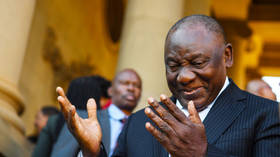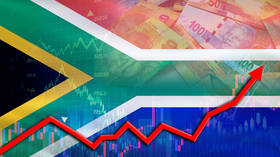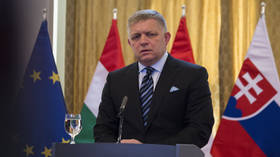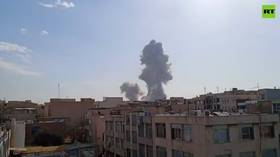US dollar ‘cannot be trusted,’ former IMF executive tells RT

The dollar-based international monetary system is becoming increasingly “dysfunctional,” prompting BRICS countries to consider creating their own currency, Brazil’s former representative at the International Monetary Fund (IMF), Paulo Nogueira Batista Jr., has told RT.
According to Batista, even though the greenback will remain an important global legal tender, the currency can no longer be trusted.
Speaking ahead of the 15th BRICS summit in Johannesburg, the Brazilian economist said that US-led financial institutions are not addressing the needs of developing countries. He pointed to “growing dissatisfaction” among emerging market economies with the way that existing dollar-based institutions such as the IMF and the World Bank work.
“We remain in the IMF, we remain in the World Bank, we are participating but we decided to create our own avenue as a development because the world is becoming increasingly multipolar and the Washington institutions do not respond to that,” Batista said, referring to the BRICS bank.
Officially known as the New Development Bank (NDB), the organization is a multilateral financial development institution established by the alliance of major emerging economies, comprising Brazil, Russia, India, China, and South Africa in 2014.
The economist noted that the NDB was created by and for emerging economies without the participation of advanced countries, and claimed it is more “Global South-oriented than the World Bank can ever be.”
“We had deliberate intention to have the bank acting in a non-intrusive manner – support the plans, infrastructure, sustainable development in the countries without trying to guide them, overwhelm them with rules that are not necessarily the ones that they see fit for their own development needs,” Batista said.
Speaking about the prospects of de-dollarization, he stated that the greenback will remain “a very important currency,” but the fact that the US has been using the dollar as a weapon to target countries seen as hostile to the West has reduced confidence in it.
“When the US does what it does [by] taking advantage of its role as the issuer of the dominant currency, other countries are uncertain as to whether they can continue using the dollar as they have been using,” he warned.
Batista insisted that the multipolar world would lead to the reduction of the role of Western currencies.
“This has accelerated with the use of the dollar for political purposes, for geopolitical purposes, notably now against Russia,” the former IMF executive explained.
According to Batista, BRICS has “a role to play” in creating its own reserve currency. Russia has already proposed that the new currency be called ‘R-five’, as the currencies of the BRICS countries all begin with the letter ‘R’ (real, ruble, rupee, renminbi, and rand).
“I believe that the R-five can be started as a unitive account and subsequently evolve into other steps,” Batista concluded.
For more stories on economy & finance visit RT's business section













